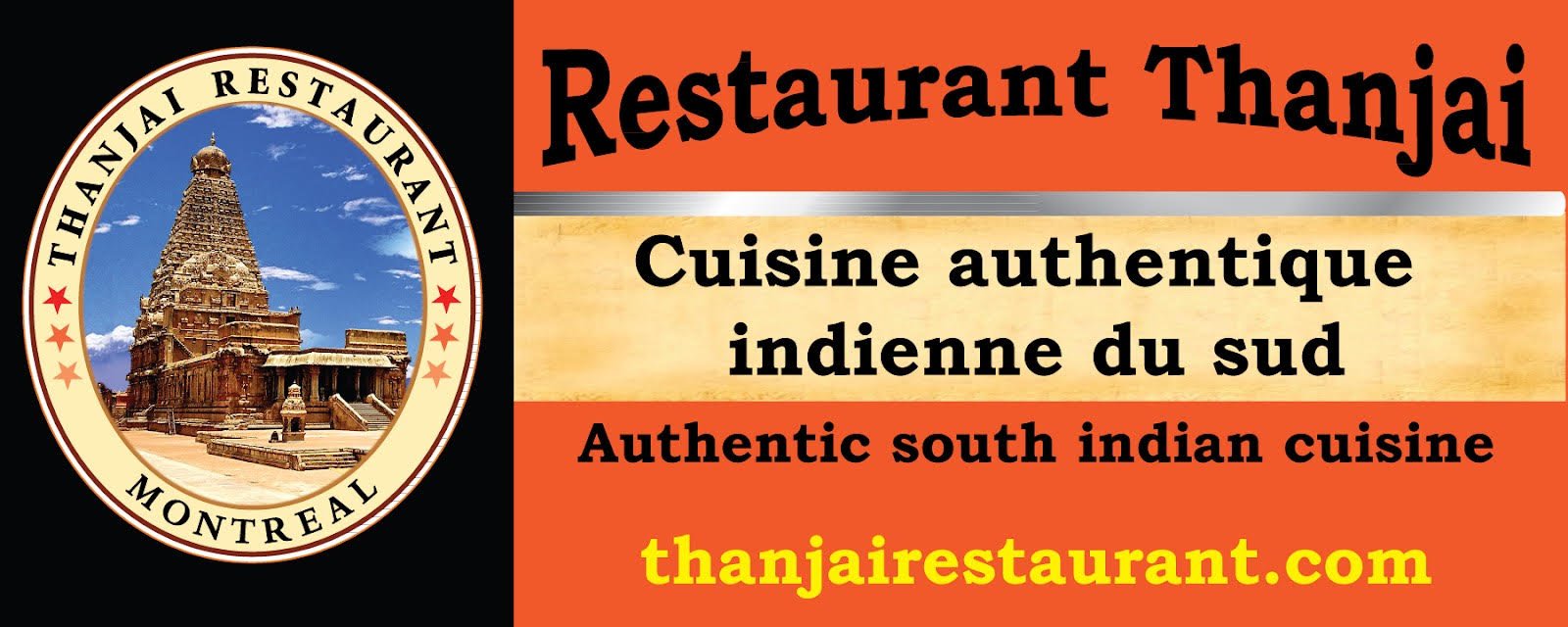Second Conference
CONFERENCE ON MAY 5 AND MAY 6
From 9 AM to 6 PM at Carleton University’s Richcraft Hall.
The overall theme of the Conference is ‘Tamil Nationhood and Genocide in Sri Lanka’ and the ‘Search for Justice and Post-war Rebuilding of Tamil Nation’.
Two Keynote Speakers will address these themes at the opening session of the two days. They are Ms Anuradha Mittal from the Oakland Institute in California and Dr Richard Mann from the College of Humanities at Carleton University in Ottawa.
Over 20 contributed papers will be presented at the Conference over the two days by a number of researchers, distinguished scholars, authors, columnists and activists. These papers will be arranged according to the following 5 sub-themes briefly outlined below.
THEMES
Theme – Sinhala Buddhist Ethno-Nationalism and its consequences in Sri Lanka
Scholars presenting papers on this theme will address the nature of Sinhala-Buddhist ethno-nationalism which has characterised politics in Sri Lanka, particularly from a historical and political science standpoint. The Sinhalese-centric historical narratives and the perpetuation of disputed myths, symbols and heroes as official history of Sri Lanka have gone on for centuries. This phenomenon has produced and reproduced hierarchies and subjugation, which in turn have driven the Sri Lankan State towards fostering conflict, violence and war in recent decades.
The seven decades long resistance and struggle of the Tamil people since independence from Britain, and their claims for Nationhood and the Right to Self-Determination, over the past four decades, will be argued for in politico-legal terms, as the inevitable consequence of the deeply entrenched Sinhala-Buddhist ethno-nationalism.
Theme – Human Rights Violations and the Search for Justice
Papers in this session will begin by enumerating the persistent and systemic way in which every article in the Universal Declaration of Human Rights has been flouted over seven decades by successive Governments of Sri Lanka, while denying to the Tamils even the basic protection afforded to a citizen anywhere else in the world. Evidence of on-going violations of human rights, despite the end of the civil war nine years ago, will be presented, along with the argument for memorializing and documenting Tamil Genocide and the implications of that for justice and accountability in the long term.
Theme – Genocide by any other name
This theme is devoted to addressing the different manifestations of what amounts to Genocide as experienced by the Tamil Nation in the island of Sri Lanka, historically and now, since the end of the war. The links between Genocide of Tamils and Transitional Justice, the gendered forms of that genocide, resistance as well as responses to the ongoing genocidal actions of the Sri Lankan State will be proposed by international scholars.
Theme – Diaspora Resources and Responsibilities
The emergence of a Tamil Diaspora in the international and transnational context, and the nature of the diaspora-homeland dynamic have been a subject of much interest and interrogation by scholars. Tamil diaspora’s role and impact in the pursuit of transitional justice against Sri Lanka from afar up to this point, and the lessons to be drawn from it will be discussed. Nationalism and nationalist dynamics of the Tamils, as well as positioning of the Tamil demands for self-determination within a wider ethics of nationalist claims and counter-claims, such as its parallels in the Scottish and Catalan cases, among others, will be also discussed.
Theme – Rebuilding the Tamil Nation in today’s Geo-political context
The widespread impact of heavy military presence in the Tamil homeland, particularly in terms of how it leads to repression of post-war economic growth, interference in civilian life, breakdown of community values of trust and cohesiveness, and violation of human rights will be examined in this theme. Equally, the need to match the present diaspora efforts in relief, rehabilitation and rebuilding only, with an integrated framework for the development of science and technology at all levels to rapidly advance and empower the Tamil population will be proposed.
Way Forward
A final session will be dedicated to examining the way forward. The essential outcomes and highlights of the academic sessions will be captured, discussed and incorporated, along a few pre-determined threads, for further action and as guidance to the work of the Tamil Diaspora in the short and medium terms.
Conclusion
The concluding session of the Conference will take place at Parliament Hill on Monday, 7thof May.
Please note that pre-registration on line is required for attendance at the Conference.
Conclusion session at Parliament Hill on May 7.
Anuradha Mittal, is founder and executive director of the Oakland Institute and an internationally renowned expert on development, human rights, Agriculture and land rights issues. She is Recipient of several awards, notably the Most Valuable Thinker by the Nation magazine. Starting in 201, the Oakland Institute, under Anuradha’s leadership unveiled land investment deals in the developing world which revealed a disturbing pattern of a lack of transparency, fairness, and accountability. The dynamic relationship between research, advocacy, and international media coverage has resulted in an amazing string of successes and organizing in the U.S. and abroad.
Anuradha led the research at the Oakland Institute, including field research in Eastern and Northern provinces of Sri Lanka in December 2014, which led to the first independent report on human rights situation, especially as it relates to the land rights of the Tamils. Institute’s report, The Long Shadow of War: The Struggle for Justice in Postwar Sri Lanka and an accompanying report, I Speak without Fear: Where Are Our Loved Ones Who Have Been Abducted, Arrested, and Disappeared?, created a media storm and the issue of denial of justice for Tamils in Sri Lanka was on the front pages of every major news paper following the release of the reports. Following the release of the reports, Anuradha was personally petitioned by the Tamil IDPs in Sri Lanka, who had been forcibly removed from their lands and were displaced for over 30 years.
Resulting research and advocacy around publications, Waiting to Return Home: Continued Plight of the IDPs in Post-War Sri Lanka and Justice Denied: A Reality Check on Resettlement, Demilitarization, and Reconciliation in Sri Lanka are landmark publications around the land rights of the Tamils in Sri Lanka. The work of the Institute was also used by the governments of Canada and the United Kingdom to inform their policies around Tamil asylum seekers from Sri Lanka.
Anuradha’s articles and opinion pieces have been published in widely circulated newspapers. Anuradha has addressed the Congress, the United Nations, given several hundred keynote addresses including invitational events from governments and universities, and has been interviewed on CNN, BBC World, CBC, ABC, Al-Jazeera, National Public Radio, Voice of America and every mainstream news service.’ The academic paper “The Long Shadow of War: The Struggle for Justice in Post War Sri Lanka”, by Anuradha Mittal can be found here: https://tamilconferences.org/wp-content/uploads/2023/06/second-itc-book-of-proceedings-19-21.pdf
Dr. David Rampton is currently a Lecturer in World Politics at New College of the Humanities where he teaches a course on the dynamics and legacies of empire, colonialism and decolonisation. He is also a Visiting Lecturer in the International Relations Department of the London School of Economics where he convenes a Masters course on Conflict and Peacebuilding. He completed his doctorate on Sinhala nationalism in Sri Lanka at SOAS, which he is currently developing into a book entitled, Power, Identity and Conflict in Sri Lanka. His research focuses on the role of identity in the global, regional and national constitution of social orders and in dynamics of conflict and peace. The academic paper “From the Margins to the Centre: International Relations, the ‘Return’ of Nationalism and Post-War Tamil Mobilisation”, by Dr. David Rampton and Suthaharan Nadarajah can be found here: https://tamilconferences.org/wp-content/uploads/2023/06/second-itc-book-of-proceedings-117-127.pdf
Peter Schalk held the Chair Professorship of History of Religions, especially Hinduism and Buddhism, at Uppsala University. Though he is now retired, he keeps on his many research interests in. religious expressions in intra- and inter-state conflicts in South Asia and Southeast Asia, He has been engaged in Tamil Studies since the 1970s, and started his field work in Sri Lanka in 1970. Professor Schalk was behind the very productive exchange program between Yalppanam University and Uppsala University since the 1970s. The academic paper “Political Buddhism and Sinhala Ethnonationalism” by Peter Schalk can be found here: https://tamilconferences.org/wp-content/uploads/2023/06/second-itc-book-of-proceedings-23-31.pdf
Anne Gaul is currently Teaching Assistant at the University of Limerick, where she also completed her PhD on the trajectory of contemporary Sinhalese nationalism in 2017. She teaches courses on conflict, development, and peacebuilding, and her research interests include nationalism studies, peace and conflict studies, critical discourse analysis, and politics in Sri Lanka. The academic paper “Whose History: Exploring the Elusiveness of a ‘Sri Lankan’ Past and Present in History Textbooks“, by Anne Gaul can be found here: https://tamilconferences.org/wp-content/uploads/2023/06/second-itc-book-of-proceedings-37-44.pdf
Dr. Sri Ranjan is a Professor in the Department of Biosystems Engineering at the University of Manitoba completing 28 years of teaching and doing research in irrigation and drainage engineering. He is active in Tamil rights issues and currently Chair of the National Council of Canadian Tamils and President of the International Council of Eelam Tamils. He has made presentations in Canada, USA, EU, UNHRC on human rights violations against Tamils by Sri Lanka. The academic paper “Failure of Sri Lanka to abide by the Universal Declaration of Human Rights“, by Dr. Sri Ranjan can be found here: https://tamilconferences.org/wp-content/uploads/2023/06/second-itc-book-of-proceedings-61-69.pdf
Dr. Gowrinathan is the Founder and Director of the Politics of Sexual Violence Initiative, a global initiative examining the impact of rape on women’s political identities, and a Visiting Research Professor at the Colin Powell Center for Global and Civic Leadership at City College New York. She is currently the founder and director a new program under this initiative, Beyond Identity: A Gendered-Platform for Scholar Activists. She is also currently a Senior Scholar the Center for Political Conflict, Gender, and People’s Rights at the University of California, Berkeley and the creator of the Female Fighter Series at Guernica Magazine.
Dr. Gowrinathan received her PhD in Political Science from the University of California, Los Angeles titled “Why Women Rebel: Understanding Female Fighters in the Liberation Tigers of Tamil Eelam” which received the Jean and Irving Stone Award for Innovation in Gender Studies. The academic paper “On Moments and Movements“, by Dr. Gowrinathan can be found here: https://tamilconferences.org/wp-content/uploads/2023/06/second-itc-book-of-proceedings-33-36.pdf
Kumaravadivel Guruparan is a Senior Lecturer and Head of the Department of Law, University of Jaffna, Sri Lanka. He is also a practicing attorney interested in civil appellate litigation, administrative law and human rights law. He holds an LL.B (Hons) from the Faculty of Law of the University of Colombo and as a Chevening Scholar obtained a BCL (Masters in Law) from Balliol College, University of Oxford. He is currently in the process of completing his PhD. Kumaravadivel Guruparan is the founding Executive Director of Adayaalam Centre for Policy Research, a think tank based in Jaffna. This centre is making an active contribution to a number of areas including working towards justice, accountability and sustainable peace in Sri Lanka. The academic paper “Normalization of the Abnormalcy: A Diagnosis of the Existential Threats to the Tamil Community in Sri Lanka and Some Observations for Imagining an Alternative Future“, by Kumaravadivel Guruparan can be found here: https://tamilconferences.org/wp-content/uploads/2023/06/second-itc-book-of-proceedings-45-51.pdf
Camilla Orjuela is Associate Professor in Peace and Development Research at the School of Global Studies, University of Gothenburg, Sweden. She is the author of The Identity Politics of Peacebuilding: Civil Society in War-torn Sri Lanka (Sage, 2008), and the co-editor of Corruption in the Aftermath of War (Routledge, 2016). Her research has focused on diaspora mobilisation, peace activism, identity politics, corruption, post-conflict reconstruction and reconciliation. Her research experience in Sri Lanka and on Tamil issues goes back to the 1990s, while more recently she has also done work on Rwanda and Burma. The academic paper “Seeking justice from afar: the Tamil diaspora and transitional justice“, by Camilla Orjuela can be found here: https://tamilconferences.org/wp-content/uploads/2023/06/second-itc-book-of-proceedings-109-116.pdf
Frances Harrison set up and runs the International Truth and Justice Project based out of London along with Yasmin Sooka who is based in South Africa. For two decades she was a BBC Foreign Correspondent based in Pakistan, Bangladesh, Malaysia, Sri Lanka and Iran, reporting for TV, radio and online. She’s also worked for the Guardian, National Public Radio, CBC, Deutsche Welle, ABC Australia, ABC US and numerous other outlets as a broadcaster, as well as brief stints at Amnesty International, OHCHR in Geneva and on UN Commissions on Gaza and South Sudan. Frances has an MA from the School of Oriental and African Studies at London University, and a BA from Trinity Hall, Cambridge. In 2012 she published Still Counting the Dead, a book of survivors’ stories from the final phase of the war in Sri Lanka. The book inspired a play called Island Nation by the human rights theatre group Ice and Fire performed in London in 2016. The academic paper “Perpetrators, Deniers and Enablers: Torture in Sri Lanka“, by Frances Harrison can be found here: https://tamilconferences.org/wp-content/uploads/2023/06/second-itc-book-of-proceedings-53-60.pdf
Lorenzo Fiorito is an LLM candidate at the University of Wolverhampton in the UK, and holds a BA in Political Science from the University of Alberta. He has done Tamil advocacy work for several years, including writing a monthly column for the Tamil Mirror in Toronto, contributing to the TamilNet and Tamil Diplomat media sites, and participating in lobby work at the UN Human Rights Council and the European Parliament. The academic paper “International Investment Agreements as a Tool for Promoting Human-Rights Outcomes: Theory and Practice of a ‘Shared-Interests’ Approach to Lobbying UN Member States“, by Lorenzo Fiorito can be found here: https://tamilconferences.org/wp-content/uploads/2023/06/second-itc-book-of-proceedings-73.pdf
Sowjeya Joseph is German-qualified lawyer and holds a LLM in International and European Law from the University of Sheffield. She has been a Tamil rights activist for a few years and participated in advocacy work in London and in the UN Human Rights Council in Geneva. She worked on human rights topics in form of articles, reports and documentary in different collaborations. The academic paper “Calling for a Security Council Intervention by Invoking the Responsibility to Protect (R2P): On-going application of R2P from the final stages of armed conflict (2009) until now“, by Sowjeya Joseph can be found here: https://tamilconferences.org/wp-content/uploads/2023/06/second-itc-book-of-proceedings-75.pdf
Thusiyan Nandakumar is a member of the editorial board of the Tamil Guardian, having held the post of editor-in-chief in 2016. Prior to this post, he has contributed to the Tamil Guardian since 2009 providing coverage from Tamil Eelam, India, North America and across Europe, including from major international conferences. In this role he has also spoken on a number of panels and provided interviews to international media. As an activist, he has also contributed to several other projects and worked with a number of different organisations based in the diaspora and North-East. He is a graduate of King’s College London, having read medicine and an intercalated BSc in Global Health, whilst also organising student activist campaigns and seminars. He currently works as a medical doctor in London. A member of the King’s College London Conflict and Health Research Group, he has also been a guest lecturer on conflict and security issues relating to Sri Lanka at Oxford University, Imperial College London and the Royal Society of Medicine amongst others. He is the author of an upcoming book chapter entitled ‘Digital technology, journalism and politics in Sri Lanka’s ethnic conflict’ published by Palgrave Macmillan in July 2017. The academic paper “Digital Technology and Journalism as Tools for Tamil Resistance“, by Thusiyan Nandakumar can be found here: https://tamilconferences.org/wp-content/uploads/2023/06/second-itc-book-of-proceedings-77.pdf
Francis Boyle has been Professor of Law at University of Illinois College of Law since 1978, having obtained degrees in political science (Chicago), law (Harvard) and a PhD from Harvard also. He has been Bertrand Russell peace lecturer at McMaster University (2007) Parhad lecturer, University of Calgary (2001) and professor USSR Summer University Jurists (1989). He has worked with the Department State, and been consutant to UN Committee on Exercise of Inalienable Rights of Palestinian People, and also worked for Amnesty International USA, and Republic ofBosnia and Herzegovina International Court Justice . Among others, he has Published The Tamil Genocide by Sri Lanka: The Global Failure to Protect Tamil Rights Under International Law (Clarity Press, 2009). The academic paper “Boycott, Divestment, Sanctions (BDS) Campaign: Stopping GOSL Genocide Against the Tamils“, by Francis Boyle can be found here: https://tamilconferences.org/wp-content/uploads/2023/06/second-itc-book-of-proceedings-85-89.pdf
Professor Ramu Manivannan, is Head of Department of Politics and Public Administration of the University of Madras, and a long time academic researcher and author in the Human Rights arena. His voluminous work on the international crimes committed by the Sri lanka State in and around Mullivaaikaal is titled ‘Sri Lanka: Hiding the Elephant’ Documenting War Crimes, Crimes against humanity and Genocide’ Prof Manivannan comes to us today from Taiwan where he has been the recipient of 2018 “Taiwan Fellowship ” from south India. The academic paper “Genocide of Tamils and the Nature of Transitional Justice in Sri Lanka “, by Professor Ramu Manivannan can be found here: https://tamilconferences.org/wp-content/uploads/2023/06/second-itc-book-of-proceedings-81-84.pdf
Nirmanusan Balasundaram is a journalist, human rights defender and independent researcher in Peace-building and Conflict Resolution. Nirma holds a Masters in Peace and Conflict Studies. He has frequently engaged with international stakeholders including diplomats, civil society members, journalists, politicians and policy makers in Geneva, Brussels, Washington DC and London on issues surrounding human rights, mass atrocities, justice and accountability in Sri Lanka. The academic paper “War and Media: Failings and Performance in Sri Lanka“, by Nirmanusan Balasundaram can be found here: https://tamilconferences.org/wp-content/uploads/2023/06/second-itc-book-of-proceedings-91-98.pdf
Tasha Manoranjan is the founder and director of People for Equality and Relief in Lanka (PEARL), a non-profit advocacy organization dedicated to promoting human rights in Sri Lanka. She spent over a year documenting human rights violations committed against Tamil civilians in northern Sri Lanka, and remains committed to pursuing accountability for violations of international law. Tasha is a graduate of Yale Law School and is associate in a Litigation Practice. The academic paper “Gendered Genocide and Resistance: Sri Lanka’s War Against the Tamil Nation“, by Tasha Manoranjan and Laxana Paskaran can be found here: https://tamilconferences.org/wp-content/uploads/2023/06/second-itc-book-of-proceedings-99-108.pdf
Laxana Paskaran is a community organizer, writer, and artist. She received her Honors degree in Environmental Science and English from the University of Toronto Scarborough Campus (UTSC). At UTSC, Laxana was President of the UTSC Tamil Students’ Association, one of the largest and most politically active clubs on campus. As a Board of directors member of Scarborough Campus Students’ Union, Laxana has volunteered her time to coordinate campaigns, organize events, and facilitate workshops with several Tamil community organizations based in Toronto. She is currently working on an educational project addressing the struggles of Tamil political prisoners incarcerated in Sri Lanka under the Prevention of Terrorism Act. The academic paper “Gendered Genocide and Resistance: Sri Lanka’s War Against the Tamil Nation“, by Laxana Paskaran and Tasha Manoranjan can be found here: https://tamilconferences.org/wp-content/uploads/2023/06/second-itc-book-of-proceedings-99-108.pdf
Suthaharan Nadarajah is a Lecturer in International Relations at the Department of Politics and International Studies, at the School of Oriental and African Studies at the University of London, UK. His doctoral thesis used Sri Lanka’s armed conflict and Norwegian-led peace process as case study, and he has published on the relations between Tamil diaspora mobilisation and international contexts. His work has appeared in the several academic journals . His current research is located in international security, global governance and North–South relations, with a focus on how the international community secures itself against emergent threats to international order through global frameworks combining themes of security, development and liberal governance. He was editor of the Tamil Guardian newspaper from 1998 to 2007. The academic paper “From the Margins to the Centre: International Relations, the ‘Return’ of Nationalism and Post-War Tamil Mobilisation“, by Suthaharan Nadarajah and Dr. David Rampton can be found here: https://tamilconferences.org/wp-content/uploads/2023/06/second-itc-book-of-proceedings-117-127.pdf
Dr. R. Cheran is an academic, poet, playwright and journalist. Dr. Cheran has a Bachelor of Science degree from the University of Jaffna, an MA in Politics of Alternative Development from the International Institute of Social Studies(ISS) in The Hague, Netherlands and a Ph.D. in Sociology from York University in Toronto, Canada. He is an Associate Professor in the Department of Sociology, Anthropology, and Criminology at the University of Windsor and teaches in the areas of migration, genocide studies, transnationalism, and globalization. Dr. Cheran is the recipient of several major research awards, and his current research focuses on the role of peace builders and alternate forms of governance by nations without states in Myanmar, Indonesia, Nepal and Sri Lanka.
Dr. Cheran has authored/edited several scholarly publications, including, Pathways of Dissent: Tamil Nationalism in Sri Lanka, New Demarcations: Essays in Tamil Studies, History and Tamil Diaspora Imagination, World Without Walls. His forthcoming book is ,” The Politics of Transition from War to Peace in South and South East Asia
He was one of the founding organizers of the annual Toronto Tamil Studies Conference at the University of Toronto, and the Free Media Movement in Sri Lanka. Cheran, despite his impressive record as an academic, is first and foremost a poet. He has authored over fifteen books in Tamil, and his work has been translated into sixteen languages including Dutch. Latest of his poetic work in English reflect the tragedy and pain of mass atrocities and trauma -is In a Time of Burning.
DOWNLOAD ACADEMIC PAPERS
DAY 1 MAY 5, 2018
The Long Shadow of War: The Struggle for Justice in Post War Sri Lanka
“One of the biggest consequences of the war was the displacement of people from their homes and the lands they depended on for their livelihoods”
By Anuradha Mittal
SESSION 1: ETHNO-NATIONALISM AND ITS CONSEQUENCES IN SRI LANKA
The Significance of Identity in War, Conflict and Violence: Sinhala Nationalism in Sri Lanka (Video only)
“In the post-Cold War and post-9/11 periods, mainstream social science perspectives have increasingly marginalised the role of ethnic and nationalist identity in dynamics of war, violence and conflict.”
By Dr. David Rampton
Political Buddhism and Sinhala Ethnonationalism
“Sinhala-Buddhist ethnonationalism is a political construction in defence of a projected unitary state.”
By Professor Peter Schalk
On Moments and Movements
“By evoking Tamil motherhood, the women tapped into deep-seated cultural norms regarding the role of women within Tamil society. Women took advantage of this symbolic dynamic, often emphasizing their role as the ‘nurturer’ responsible for the safety and education of Tamil children in order to challenge LTTE practices.”
By Dr. Nimmi Gowrinathan
Whose History: Exploring the Elusiveness of a ‘Sri Lankan’ Past and Present in History Textbooks
“This paper uses history textbooks to provide an inside into the myths and symbols of contemporary Sinhalese Buddhist nationalism and how these may be used to make sense of postwar realities.”
By Dr. Anne Gaul
Normalization of the Abnormalcy: A Diagnosis of the Existential Threats to the Tamil Community in Sri Lanka
and Some Observationsfor Imagining an Alternative Future
“I define normalization of abnormalcy as the forced transformation of the unacceptable into the acceptable as a consequence of deep-seated oppression that is all pervasive, and that which is both subtle and deliberate.”
By Dr. Kumaravadivel Guruparan
SESSION 2: ETHNO-NATIONALISM AND ITS CONSEQUENCES IN SRI LANKA
Perpetrators, Deniers and Enablers: Torture in Sri Lanka
“This essay examines the intersection of society’s denial and violations of human rights in post-war Sri Lanka.”
By Frances Harrison
Failure of Sri Lanka to abide by the Universal Declaration of Human Rights
“This paper will enumerate the violations of every article in the UDHR, spanning seven decades, by successive Governments of Sri Lanka (GoSL) as it continues to annihilate Eelam Tamils as a people in the island.”
By Dr. R. Sri Ranjan
Tamil-Muslims Relations in the Context of the Global War on Terror (Video Only)
By Fatima Cader
Sri Lanka and Myanmar: A Tale of Two Buddhist Genocides
“This talk will take a comparative look at the two ethnocratic states, their ideological affinities, mutual support and cooperation in the way they have been dealing with minorities within their territories.”
By Dr. Maung Zarni
International Investment Agreements as a Tool for Promoting Human-Rights Outcomes:
Theory and Practice of a ‘Shared Interests’ Approach to Lobbying UN Member States
“The investment system has a dramatically more effective track record of altering state behaviour than the UN Human Rights Council does. Arbitral awards can often be enforced by seizing an offending state’s or investor’s assets around the world.”
By Lorenzo Fiorito
Calling for a Security Council Intervention by Invoking the Responsibility to Protect (R2P):
On-going application of R2P from the final stages of armed conflict (2009) until now
“A referendum would arguably lay the peaceful and democratic foundations for stability and security in the region, and thus ‘prevent’ future crimes by removing the root causes of conflict.”
By Sowjeya Joseph
Digital Technology and Journalism as Tools for Tamil Resistance
“Throughout the armed conflict, and even beyond its end in 2009 – Tamils have managed to find avenues to resist state barriers, with digital technology providing innovative tools.”
By Dr. Thusiyan Nandakumar
Normalizing the Abnormal – Militarization in the North-East
“The Sri Lankan military stands accused of atrocity crimes against the very population in which it is immersed.”
By Dharsha Jegatheeswaran and Mario Arulthas
SESSION 3: GENOCIDE BY ANY OTHER NAME
Genocide of Tamils and the Nature of Transitional Justice in Sri Lanka
“This paper evaluates the working of transitional justice in Sri Lanka after the end of civil war and armed conflict in Sri Lanka in May 2009”
By Professor Ramu Manivannan
Boycott, Divestment, Sanctions (BDS) Campaign: Stopping GoSL Genocide Against the Tamils!
“The Sinhala-Buddhist Government of Sri Lanka (GOSL) has inflicted outright genocide against the Eelam Tamils in flagrant violation of the 1948 Genocide Convention to which it is a contracting party.”
By Professor Francis Boyle
Media and War: Failings and Performance in Sri Lanka
“This paper focuses on the roles and responsibilities of the media in relation to war and human rights, as well as justice and accountability in Sri Lanka.”
By Nirmanusan Balasundaram
Gendered Genocide: Sri Lanka’s War Against the Tamil Nation
“This paper explores the gendered impact of Sri Lanka’s conflict, and offers vignettes of women’s motivations for joining resistance movements against Sri Lanka’s genocide”
By Tasha Manoranjan and Laxana Paskaran
SESSION 4: RESISTANCE, RESOURCES AND RESPONSIBILITIES OF THE DIASPORA
Resistance, representation and rise of the Tamil diaspora (Video Only)
By Dr. Sutha Nadarajah
Transnational Imageries: Responsibility and Irresponsibility of Distance (Video Only)
“In this paper I will discuss the ethical and political responsibility of transnational politics in the context of post genocide.”
By Professor R. Cheran
Seeking justice from afar: the Tamil diaspora and transitional justice
“This paper presents a research project which has focused on how the Tamil diaspora engages in the pursuit of truth, justice and remembrance in relation to war-atrocities in Sri Lanka.”
By Dr. Camilla Orjuela
From the Margins to the Centre: International Relations and the ‘Return’ of Nationalism and Post-War Tamil Mobilisation
“This paper engages with evolving social science and policy understandings of nationalism in the contemporary context.”
By Dr. Sutha Nadarajah and Dr. David Rampton
DAY 2 MAY 6, 2018
Debates over Genocide as a Definition: How the State manipulates terms and histories to perpetrate Genocide
“This essay argues that the Sri Lankan government constructed definitions of Tamils as ‘terrorists’, ‘separatists’, and ‘anti-national’ in an attempt to disguise state violence against the Tamil minority community in Sri Lanka as anti-terrorist as opposed to state generated violence.”
By Richard Mann
SESSION 5: RESISTANCE, RESOURCES AND RESPONSIBILITIES OF THE DIASPORA
Militarization in the North-East of Sri Lanka and Tamil National Identity
“This paper points to a critical need for further rigorous analysis and research on the impact of militarization and securitization on Tamil national identity.”
By Dharsha Jegatheeswaran
Crisis in Tamil Medium Education in Sri Lanka – A Review
“Historically, the NIE developed Sinhalese academic and administrative staff from Schools, the Ministry of Education and Universities since 1986, without offering the same opportunity to Tamil speaking scholars.”
By Dr. Nagalingam Ethirveerasingam
Eelam Nation Building – An Integrated Framework for Development of Science and Technology (Video only)
“It has been observed by many stakeholders that the traditional homelands of Eelam Tamils have been left far behind in basic standard of living, human development indices and empowerment of citizens.”
By Dr. Gnani Gnaneshan
SESSION 7: WAY FORWARD TO FREEDOM AND JUSTICE
The Legality and Success of Independence Referendums
“The paper outlines a legal and political theory of when independence referendums are permissible.”
By Professor Matt Qvortrup
Tamils’ Political Destiny – A Call for Action
“The duplicity of Sri Lanka with respect to transitional justice and the growing geo-political importance of the Indian Ocean and the strategic location of Tamil Eelam in it should serve us as the political opportunities we need to effect the desired change.”
By Visuvanathan Rudrakumaran
Schedule for the two days
| Saturday 5th May |
| 9:00 – 9:45 Opening Session |
| Opening Ceremony
Welcome & Messages Keynote Address 1: Anuradha Mittal, Oakland Foundation, California The Long Shadow of War: The Struggle for Justice in Post War Sri Lanka |
| 09:45 – 11:15 Session 1 – Ethno-nationalism and its Consequences in Sri Lanka |
| Session Chair: David Rampton
The Significance of Identity in War, Conflict and Violence: Sinhala Nationalism in Sri Lanka David Rampton Sinhala-Buddhist Ethno nationalism: Past and Present Peter Schalk Gender, Memory & Extremism: The Politics of a Moment TBC Whose History: Exploring the Elusiveness of a ‘Sri Lankan’ Past and Present in History Textbooks Anne Gaul Contextualizing the Tamil right to self-determination in the post war context: Nation Building and the idea of a parallel state Kumaravadivel Guruparan (via video) |
| 11:30 – 13:00 Session 2 – Human Rights Violations and the Search for Justice |
| Session Chair: Frances Harrison
Perpetrators, Deniers and Enablers: Torture in Sri Lanka Frances Harrison Universal Declaration of Human Rights and its failure in Sri Lanka R Sri Ranjan Tamil-Muslims Relations in the Context of the Global War on Terror TBC Special Address: Maung Zarni, Democracy Advocate & Researcher, Myanmar Sri Lanka and Myanmar: A Tale of Two Buddhist Genocides (video link) |
| 13:00 – 13:45 Lunch |
| 13:45 – 14:15 Focus on Early Stage Research |
| Session Chair: R. Sri Ranjan
Presenting Researchers: Lorenzo Fiorito Sowjeya Joseph Thusiyan Nandakumar Mario Arulthas |
| 14:15 – 15:45 Session 3 – Genocide by any other name |
| Session Chair: Ramu Manivannan
Genocide of Tamils and the Nature of Transitional Justice in Sri Lanka Ramu Manivannan Boycott, Divestment, Sanctions (BDS) Campaign: Stopping GoSL Genocide Against the Tamils! Francis Boyle Media and War: Failings and Performance in Sri Lanka Nirmanusan Balasundaram Gendered Genocide: Sri Lanka’s War Against the Tamil Nation Tasha Manoranjan & Laxana Paskaran |
| 15:45 – 16:15 Break |
| 16:15 – 17:45 Session 4 – Resistance, Resources and Responsibilities of the Diaspora |
| Session Chair: Sutha Nadarajah
Resistance, representation and rise of the Tamil diaspora Sutha Nadarajah Transnational Imageries: Responsibility and Irresponsibility of Distance R Cheran Seeking justice from afar: the Tamil diaspora and transitional justice Camilla Orjuela From the Margins to the Centre: International Relations and the ‘Return’ of Nationalism Sutha Nadarajah & David Rampton |
| 17:45 – 18:30 Discussion of Day 1 Presentations |
| Sunday 6th May |
| 09:00 – 09:30 Opening Session |
| Welcome & Messages
Keynote Address 2: Richard Mann, Faculty of Arts and Social Sciences, Carleton University Debates over Genocide as a Definition: How the State manipulates terms and histories to perpetrate Genocide |
| 09:30 – 11:00 Session 5 – Rebuilding the Tamil Nation in today’s Geo-political context |
| Session Chair: Nirmanusan Balasundaram
Military in civilian life – Implications for identity and community Dharsha Jegatheeswaran Post-war economy and Land Use in North and East of Sri Lanka: View points from Political Economy and Political Ecology Perspectives Nadarajah Sriskandarajah Crisis in Tamil Medium Education in Sri Lanka – a Review Nagalingam Ethirveerasingam Eelam Nation Building – An Integrated Framework for Development of Science and Technology Gnani Gnaneshan |
| 11:00 – 11:30 Break |
| 11:30 – 13:00 Session 6 – Synthesis Session |
| 13:00 – 13:15 Introduction of Process for Afternoon |
| 13:15 – 14:00 Lunch |
| 14:00 – 16:00 Session 7 – Way Forward to Freedom and Justice |
| Parallel Working Sessions with Lead Presenters and Moderators
1. Referendum & other methods of determining the people’s will Session Moderators: R. Sri Ranjan & Matt Qvortrup Lead Presenters: Matt Qvortrup – The Legality and Success of Independence Referendums Mohan Ramakrishnan – Tamil Referendum: A Comparative Analysis Visuvanathan Rudrakumaran – Tamils’ Political Destiny – A Call for Action 2. Engaging people and Empowering Civil Society in Diaspora and Homeland Session Moderators: S. Pathipan & Nirmanusan Balasundaram Lead Presenter: K Guruparan 3. Ways of gaining legitimacy for the Tamil struggle and Working towards Justice and Peace Session Moderator: Rajeev Sreetharan Lead Presenters: Rajeev Sreetharan Era Elamparithi 4. Boycott, Divestment and Sanctions (BDS) and other forms of pressures to stop Sri Lanka’s Genocide of Tamils Session Moderators: Avis Sri Jayantha & Siva Sivathayalan |
| 16:00 – 17:00 Session 8 – Reporting from Working Sessions in Plenary |
| 17:00 – 18:00 Session 9 – Organizations’ Position Statement |
| 18:00 – 18:30 Summing up and Closure |
Supporting Institutions
Faculty of Arts and Social Sciences, Carleton University
Colin Powell School for Civic and Global Leadership, City College, New York
The School of Arts, York University
Supporting Student Organizations
Carleton University Tamil Students Association (CUTSA),
Canadian Tamil Youth Alliance (CTYA)
University Of Ottawa Tamil Student Union (TSU)
Tamil Youth Organization – Canada (TYO-Canada)
Concordia University Tamil Mantram (CUTAM)
Wilfrid Laurier University’s Tamil Students’ Association (LUTSA),
Tamil Association Of McGill (TAMILL)
Brampton Tamil Association (BTA)
Mississauga Tamil Association (MTA)
National Council of Canadian Tamils (NCCT)
Ottawa Tamil Association (OTA)
Quebec Tamil Development Association (QTDA)
Transnational Government of Tamil Eelam – Canada (TGTE)
Tamil Canadian Civil Society Forum (TCCSF)
NATION BUILDER


DISTRICT BUILDER



CITY BUILDER






VILLAGE BUILDER




